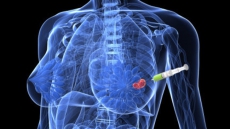The World Health Organisation (WHO) warned Friday that the semen of men recovering from Ebola can contain the deadly virus up to three months after the symptoms disappear.
Four studies on the persistence of Ebola virus in the seminal fluid of 43 patients concluded that the virus was present in the semen of three men, 40, 61 and 82 days after recovering from the haemorrhaegic fever caused by the virus.
"Because of the potential to transmit the virus sexually during this time, they should maintain good personal hygiene after masturbation, and either abstain from sex (including oral sex) for three months after onset of symptoms," advised WHO.
If abstinence is not possible, the organisation continued, the patient should use condoms.
The studies on which these recommendations are based were not made during the current Ebola outbreak centered in West Africa, but on past epidemics that occurred in Uganda and the Democratic Republic of Congo.
WHO does not recommend that convalescent men who have tested negative for the virus in their blood be kept in isolation.
The Ebola virus is found in body fluids such as blood, vomit, faeces, saliva, urine, tears and seminal and vaginal fluids.
WHO went on to caution that although the evidence is limited, it is clear that semen is a potential source of infection and can transmit the virus.





